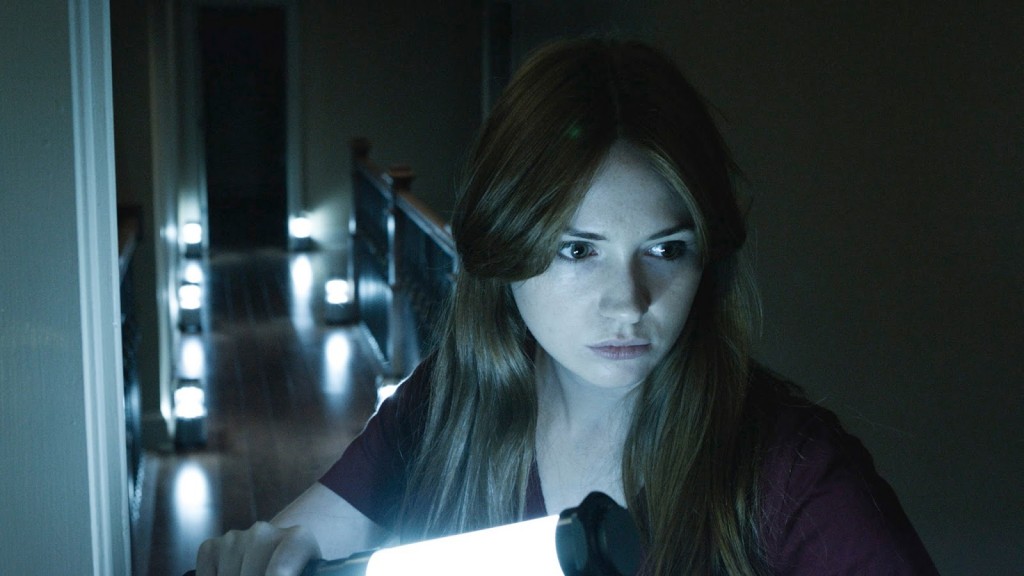Reviews
Movie review: “Oculus”

Oculus
dir. Mike Flanagan
Release Date: Apr 11, 14
- 1
- 2
- 3
- 4
- 5
- 6
- 7
- 8
- 9
- 10
Oculus is a horror film that doubles as a metacommentary on the ways in which horror films forcibly fill their audiences with mistrust. The tale of a mirror possessed by some manner of malevolent spirit, the film takes a fresh approach to a pretty standard setup by explicitly acknowledging early on that it’s going to manipulate you, and that you can’t trust anything you’re actually seeing. Like its protagonists, you see what the mirror wants you to see, which is usually the farthest possible thing from reality. And even if this means that Oculus concedes upfront that it’s going to lie to you until it’s time for the movie to wrap up, it’s often compelling just trying to figure out where you are, spatially. One of the basic assumptions of most cinema is that a character will walk into a room and end up in the next room, and Oculus introduces the intriguing wrinkle of what happens if there is no room, or if the room you think you’re in isn’t actually the room you’re in, or if you’re not even in the same decade anymore.
Director Mike Flanagan pulls this off by spreading the film between two increasingly indistinct timelines. In one, Kaylie (Karen Gillan) upsets her brother Tim (Brenton Thwaites) by insisting they return to their childhood home immediately after Tim’s release from a mental health facility on his 21st birthday. In another, 11 years earlier, Kaylie and Tim are kids struggling to understand why their mom (Katee Sackhoff) and dad (Rory Cochrane) are fighting so much, and why their dad has started spending so many hours in his office, and who that woman they saw through the window is, and so on. What starts off as a possession tale quickly splits off into allegories about the traumas of children caught in the middle of a messily dissolving marriage and the lingering power of past tragedies over the lives of those attempting to move on.
Gillan and Thwaites make for a compelling duo, with the boyish Tim’s arrested innocence playing well off Kaylie’s hell-bent determination to prove that neither she nor Tim are crazy and that something awful did indeed happen in the house. This is where that aforementioned concession of falsehood comes into play. Because it’s clear from early on that something bad did indeed happen to Kaylie and Tim as kids, and that equally bad things are going to happen to their adult selves (this is a horror movie, after all), Oculus spends a little too much of its first half going through the same basic setup scares and jump-inducing fakeouts as pretty much every possession movie. Things appear in negative space that shouldn’t be there, innocently opened doors portend dread that won’t pay off yet, and the film seems to be chomping at the bit to get on with it as much as the audience will.
But once Oculus picks up, it really picks up. The evil of the mirror is that it can seamlessly cast Kaylie and Tim into their memories without any of the standard signposts, and this is particularly hazardous to Kaylie, whose scientific approach to ghost hunting is refreshingly smart from a character standpoint but stands little chance against a faceless, ever-shifting evil that can take away the experimental controls at the drop of a hat. Eventually the film follows the story into a final fugue in which down is up, up is down, and Kaylie and Tim may or may not be putting themselves in danger without even knowing it or having any chance of becoming aware, and it’s scary as hell for it. There’s really only one scare to Oculus, but it’s a pretty great one with a wealth of potential variations, and one that carries the film farther ahead than most of its peers.